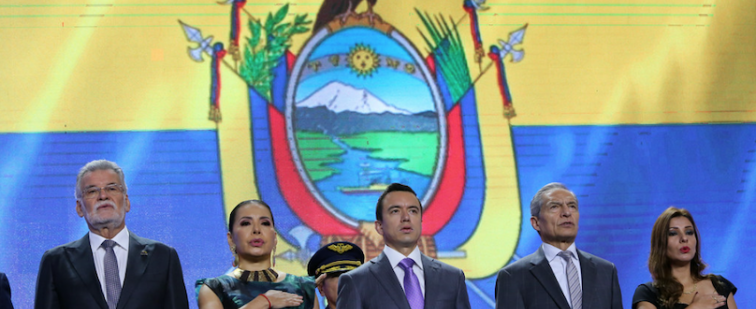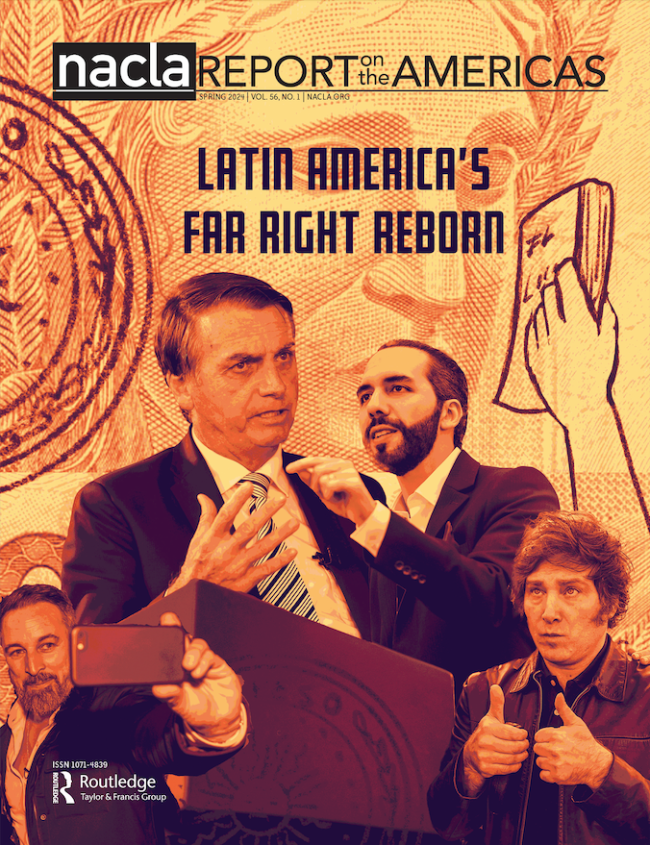Home
Last week the Brazilian Movement of Landless Rural Workers (MST) held its fifth National Congress in Brasília, the country’s capital. The power the MST has garnered throughout its 23 years was palpable, as more than 17,500 delegates from 24 states and almost 200 international guests marched to the Square of the Three Powers, situated between the buildings of the executive, judicial and legislative branches of government. Marchers hung a huge banner in the square that read, “We accuse the three powers of impeding agrarian reform.”
When Miguel Moran Acosta graduated from high school this year in Colombia's southern jungle province of Putumayo, he went back home to farm with his family in Alto Comboy, an Awa indigenous reserve. Days later, on May 23, Colombian army officials entered the reserve, tied Miguel’s hands and feet together and took him off to a nearby mountain. The following day, Miguel’s lifeless body was put on display in the province’s military barracks as a “guerrilla downed in combat.”
In this spirited call to action published by our friends at ColorLines, Roberto Lovato writes, "While important and good, negotiations, marches, lobbying and other crucial work will continue to be ineffective without an urgent strategic component. The radical political moment requires the further opening of a radical flank of the immigrant rights movement." Lovato suggests this radical flank could look to Latin American social movements for inspiration.
As I write this article, the U.S. Senate is engaged in a major policy debate about how to reform the obsolete, unjust, and deeply dysfunctional immigration policy currently in effect in the United States. Unfortunately, the proposal being debated, entitled "Secure Borders, Economic Opportunity and Immigration Reform Act of 2007," falls far short of what the country needs, or what immigrant communities deserve.
One is hard-pressed to miss the slogan “With Chávez, the people are the government” in the Venezuelan capital of Caracas, stamped as it is on government posters that paper the city. The statement claims the achievement of a perfect democracy and implicitly suggests the opposite: Without President Hugo Chávez, Venezuelan democracy would not exist.
"This is a war of information. And it is the oil company itself that has taught us to fight it," said Heriberto Gualinga, who is a kind of ‘communications boss’ of the indigenous Kichwa community of Sarayaku in the Ecuadoran jungle.
A new and deep discontent has settled over Santiago, the Chilean capital. At bus and subway stops, in blue-collar neighborhoods like La Victoria (a trench for resistance against the dictatorship), in public hospital hallways and school doorways, voices are being raised to express a new consciousness of Chilean problems. The country's leaders are being called to account for the fact that the country's neoliberal model, el modelo—which left and right-wing politicians still brag about—is showing clear signs of exhaustion.
The backlash against neoliberalism in Latin America is now leading to confrontations between several of the region’s governments and the World Bank and International Monetary Fund (IMF). In the span of just the last few weeks, there has been something of a mass defection from these institutions.
“Free trade” and an aggressive military policy are central pillars of U.S. foreign policy. Better than any country in the world, Colombia demonstrates the intimate connection between these two aspects of U.S. power and their devastating results.
Teenage actors parade barefoot onstage, jumping and pounding drums. Others walk in with notebooks and briefcases overflowing with papers. Each actor spouts fragmented political speeches. The play depicts revolts and counter-revolts throughout Bolivian history, ending with a dramatic exchange between a mother and the ghost of her dead son, tortured during a dictatorship. “Don’t cry, Mom!” the ghost says. “I died bravely even though they gouged my eyes out and tore me apart. Don’t cry!”










